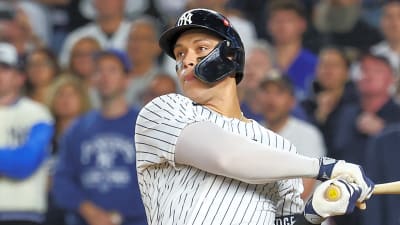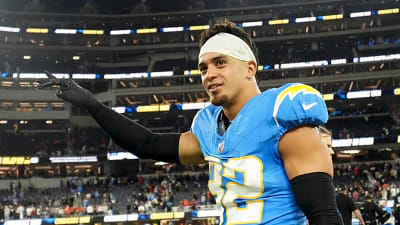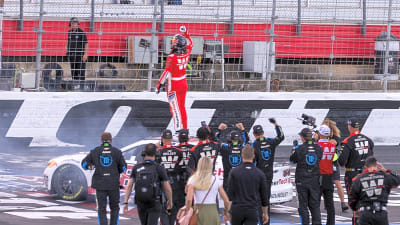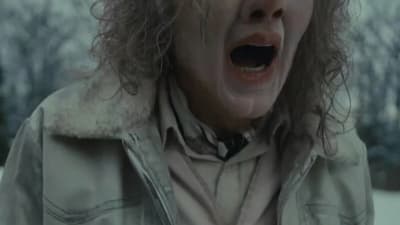
In sports, especially combat sports, people love to see the underdog. And there have been few underdogs in the UFC that earned more love than Charles Oliveira. What endears him to fans is not just the historic winning streak he put together at lightweight after turning his UFC career around. Nor is it the way he finished guys like Dustin Poirier and Justin Gaethje, among others. It’s something much more humane – something about an underdog who came from nowhere and simply refused to give up. That is the story behind the name ‘Do Bronxs,’ which we will look at in detail today.
Most fans would agree that Charles Oliveira has a pretty grateful personality. Much like other Brazilian stars like Alex Pereira, he’s also proud of his roots, and if you’re wondering how he showcases that, well, it’s all in his nickname, too.
In sports, especially combat sports, people love to see the underdog. And there have been few underdogs in the UFC that earned more love than Charles Oliveira. What endears him to fans is not just the historic winning streak he put together at lightweight after turning his UFC career around. Nor is it the way he finished guys like Dustin Poirier and Justin Gaethje, among others. It’s something much more humane, something about an underdog who came from nowhere and simply refused to give up. That is the story behind the name ‘Do Bronxs’.
Now, as he prepares to headline UFC Rio in October—stepping in against Mateusz Gamrot after Rafael Fiziev’s injury — Oliveira carries that name into the cage like armor. For him, ‘Do Bronxs’ is more than a nickname. It’s a reminder of where he came from and who he still fights for. But what does it actually mean? And how did it come to define one of the UFC’s greatest underdog stories?
What Does ‘Do Bronxs’ Mean in Brazil?
Born in 1989 in the Guarujá area of Sao Paolo, former lightweight champion Charles Oliveira had to go through a troubled childhood. The 35-year-old grew up in the favela of Vicente de Carvalho in Guaruja. The Brazilian carries the opinion that he couldn’t have reached the top of the UFC if he hadn’t spent his childhood years in the favela.
In Brazil, the word “Bronx” doesn’t mean New York. It’s slang, a way to describe the favelas, the poor and tough neighborhoods on the city’s edge. So when Charles Oliveira calls himself ‘Do Bronxs,’ he’s literally saying he’s “from the Bronx,” or in his world, from the favela.
In an interview, Oliveira explained how it all began. “Bronx is because it’s a favela, right? Outskirts, where I come from. ‘Do Bronxs’ practically came when I went to fight in a [amateur] tournament,” he recalled. “They told me to get them a nickname, I was just Charles Oliveira. When we went to fight some jiu-jitsu championships, they always said ‘look at the guys from the Bronx, from the favela.’ So I put ‘Do Bronxs’ in.”
Hence, it’s quite apparent that Oliveira never really forgot where he came from or what got him here. Having established the meaning behind Charles Oliveira’s moniker, let’s hop over to see his journey growing up in Brazil.
The Story Behind Oliveira’s Nickname: Roots in the Favelas
Being from the slums, it’s quite apparent that Oliveira has had to see the tough side of life since childhood. Apart from a poverty-stricken life in the favela of Vicente de Carvalho in Guaruja, he was also diagnosed with a few major physical issues. He suffered from chronic physical pain and had severe difficulties walking sometimes. They also diagnosed him with rheumatic fever and irregular heart murmurs, which ruptured his ankle heavily.
In an interview with ‘ESPN MMA’, Oliveira revealed that, while he was seven years of age, a doctor said he would never walk again. But a look at his stature today might give the fans an idea of the extreme hardships that he had to go through in order to become what he is today. He overcame his earlier difficulties and joined Brazilian Jiu-Jitsu classes at age 12. Oliveira trained hard and became the BJJ champion of São Paulo, just two months after his start.
View this post on Instagram
However, it was in 2007 that ‘Do Bronxs’ started to take an interest in the sport of MMA. He started his career in the same year and showcased superb prowess in MMA as well. Oliveira ramped up an undefeated record of 14-0 in his professional MMA career by 2010.
Meanwhile, while we’ve mentioned the meaning of the moniker ‘Do Bronxs’, Charles Oliveira revealed its significance around UFC 300, and he got quite emotional about it.
Oliveira’s Journey: Symbolism of the Moniker
UFC 300 didn’t turn out the way Charles Oliveira hoped it would, but that hasn’t tainted his positioning in the lightweight division as one of the best ever. Days before that fight, the 35-year-old would get teary-eyed while reminiscing about his journey from the favelas to the UFC, talking about the seemingly tough challenges that he “battled,” which is represented by his nickname.
“I battled like hell and it happened. I truly believe God chose me to not only change my story, but also my parents’ story, and the stories of many others. A kid who came from nothing, from the bottom, from the favelas, disparaged,” said Charles Oliveira. “If God were to take me today, I would die very happy. For all that I have, for all that I provided my parents. That’s what ‘Do Bronx’ means to me. A kid that came from the favela to win.”
As such, Charles Oliveira’s story is the ultimate underdog tale. From a fragile boy in a favela to a global MMA icon, every step of his journey has been marked by grit and grace. His nickname, ‘Do Bronxs,’ captures that perfectly, a single phrase that tells an entire life story.
More must-reads:
- Week 6 waiver targets: Opportunity knocks for these unexpected stars
- Fingers pointing at Yankees star over postseason struggle should be directed elsewhere
- The 'Passing leaders by NFL team' quiz
Breaking News
Trending News
Customize Your Newsletter
 +
+
Get the latest news and rumors, customized to your favorite sports and teams. Emailed daily. Always free!








